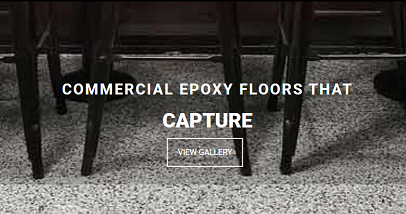Epoxy Floor Systems: A Durable and Aesthetic Solution for Modern Spaces
In today’s industrial,
commercial, and even residential settings, flooring needs to be durable, easy
to maintain, and visually appealing. One of the best solutions that meet these
requirements is an Epoxy Floor System. Known for its strength,
longevity, and versatility, epoxy flooring has become a popular choice for
garages, warehouses, hospitals, showrooms, and even homes.
This blog explores the
benefits, types, applications, and installation process of epoxy floor systems
to help you decide if it’s the right choice for your space.
What is an Epoxy Floor System?
Epoxy flooring is
a resin-based coating applied over concrete floors to create a
seamless, high-performance surface. It consists of two main components:
- Epoxy Resin – A polymer that provides
adhesion and durability.
- Hardener – A chemical agent that
triggers the curing process, making the epoxy hard and resilient.
When mixed, these components
form a rigid plastic material that bonds tightly to the floor, offering
exceptional resistance to wear, chemicals, and impacts.
Benefits of Epoxy Flooring
1. Extreme Durability
Epoxy floors are highly
resistant to heavy foot traffic, machinery, and vehicle movement,
making them ideal for industrial and commercial use. They can last 10-20
years or more with proper maintenance.
2. Chemical & Stain Resistance
Epoxy coatings
resist oil, grease, acids, and solvents, making them perfect for
garages, laboratories, and manufacturing plants. Spills can be easily wiped
away without staining.
3. Easy Maintenance
Unlike traditional
concrete, epoxy floors are seamless and non-porous, preventing dirt
and bacteria buildup. A simple sweep and mop are enough to keep them clean.
4. Safety Features
Epoxy floors can be
customized with anti-slip additives, making them safer for
workplaces. They can also be fire-resistant and anti-static,
depending on the formulation.
5. Aesthetic Appeal
Available in multiple
colors, patterns, and finishes (glossy, matte, metallic, or
quartz-filled), epoxy floors enhance the visual appeal of any space. Decorative
flakes and custom designs can mimic terrazzo or polished concrete.
6. Cost-Effective
Compared to other
high-end flooring options like tiles or polished concrete, epoxy is more
affordable in the long run due to its longevity and low maintenance
costs.
Types of Epoxy Floor Systems
1. Self-Leveling Epoxy
Ideal for smoothing
uneven concrete floors, this type creates a glossy, seamless finish.
Commonly used in showrooms, retail stores, and hospitals.
2. Epoxy Mortar Systems
A thick,
heavy-duty epoxy mixed with sand for extreme durability. Best
for industrial floors, workshops, and areas with heavy machinery.
3. Epoxy Flake Flooring
Decorative flakes are
broadcast onto wet epoxy for a non-slip, textured finish. Popular
in garages, patios, and commercial spaces.
4. Anti-Static Epoxy
Used in electronics
manufacturing, data centers, and laboratories to prevent static
buildup.
5. Quartz-Filled Epoxy
Combines epoxy with
colored quartz for a highly decorative, slip-resistant surface,
often seen in restaurants, hotels, and hospitals.
Applications of Epoxy Flooring
- Industrial & Warehouses – Resists heavy loads and
chemical spills.
- Garages & Auto Shops – Protects against oil
stains and tire marks.
- Commercial Spaces – Enhances aesthetics in
retail stores, offices, and showrooms.
- Healthcare & Food Industry – Provides a hygienic,
easy-to-clean surface.
- Residential Spaces – Used in basements,
kitchens, and living areas for a modern look.
Installation Process
- Surface Preparation – The concrete must
be cleaned, repaired, and profiled (via grinding or shot
blasting) for proper adhesion.
- Primer Application – A base coat ensures
strong bonding.
- Epoxy Application – The mixed resin and
hardener are rolled or troweled onto the floor.
- Decorative Additives (Optional) – Flakes, quartz, or
metallic pigments can be added.
- Topcoat (Optional) – A clear
polyurethane or epoxy topcoat adds extra protection and gloss.
- Curing – The floor typically
takes 24-72 hours to fully cure.
Epoxy Floor Systems
offer a perfect blend of
durability, functionality, and aesthetics, making them a top choice for
various applications. Whether you need a heavy-duty industrial floor, a stylish garage coating, or a hygienic hospital floor, epoxy provides a long-lasting and cost-effective solution.
If you’re considering
epoxy flooring, consult a professional installer to ensure proper surface
preparation and application for the best results.
Would you install an
epoxy floor in your home or business? Share your thoughts in the comments!




Comments
Post a Comment